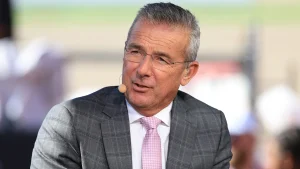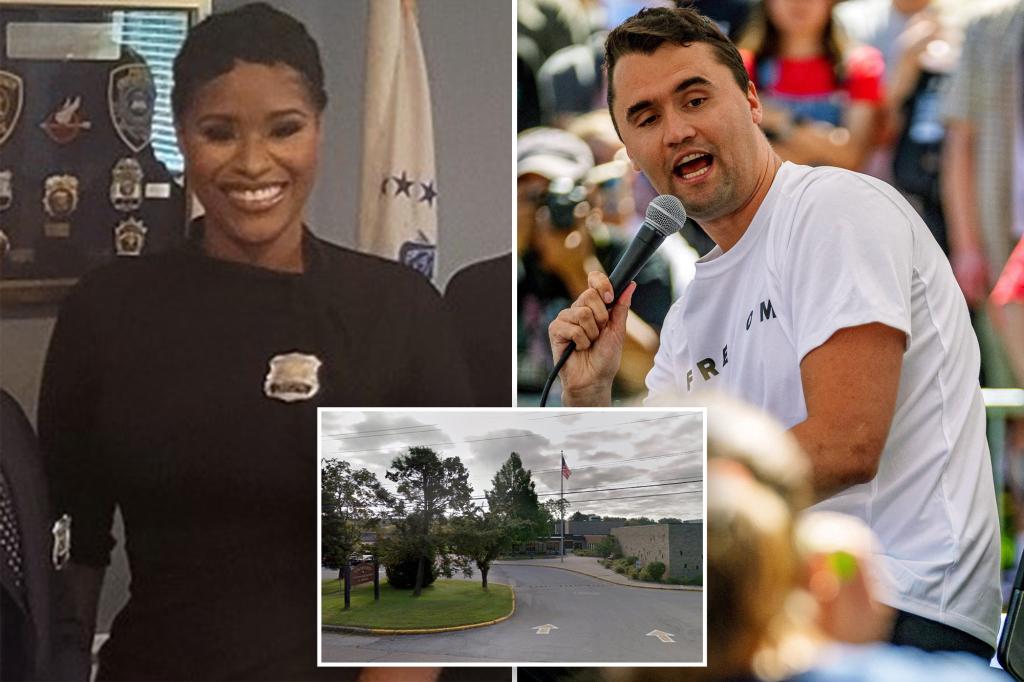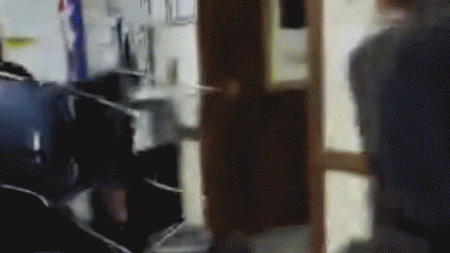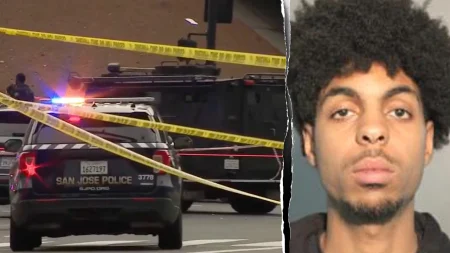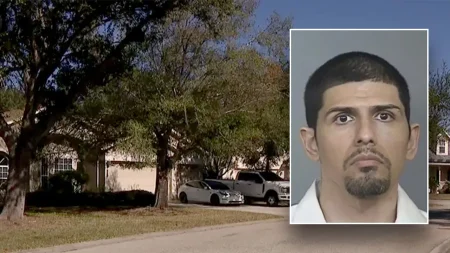Police Officer Removed Over Controversial Social Media Posts Following Kirk Shooting
In a concerning development from Somers, Westchester County, School Resource Officer Tanisha Blanche has been removed from her position at Somers Intermediate School following disturbing social media posts about the shooting of conservative commentator Charlie Kirk. The incident, which occurred at Utah Valley University on Wednesday, shocked many across the political spectrum. However, Blanche’s apparent celebration of the violence on her Instagram account crossed professional and ethical boundaries, prompting swift action from school and law enforcement officials. According to reporting by Mid Hudson News, Blanche shared multiple posts that seemed to mock Kirk’s injury and celebrate the violence against him, raising serious questions about her judgment and fitness for a role centered on protecting students.
The posts attributed to Officer Blanche displayed a deeply troubling tone, with one stating, “Well that white sniper was over qualified when he put that hole in your neck hunni bunni,” in reference to Kirk’s shooting. Another post reshared a video of Kirk with the caption “Welp! That didn’t end well buddy.” A third message attempted to draw a controversial comparison, asking why people were “crying over the man that was ok with gun violence” while allegedly not having “that same energy for the school shooting that took place yesterday.” These statements, appearing to glorify political violence while coming from someone tasked with school safety, understandably alarmed parents and school officials. The Instagram account has since been made private, but the damage to public trust was already done, necessitating an immediate response from school administrators.
Somers Superintendent of Schools Adam Bronstein acted decisively upon learning of the social media activity, immediately contacting the supervisor of the Westchester County School Resource Officers unit. In a letter to parents explaining the situation, Bronstein emphasized that “the nature of the posts glorifies violence, which is completely unacceptable for someone entrusted with the safety of students and staff members.” His swift response underscores the seriousness with which school officials viewed these posts, particularly coming from someone in a position specifically designed to protect children and create a safe learning environment. School resource officers hold positions of significant trust within educational communities, making Blanche’s apparent celebration of violence particularly disturbing in the context of her professional responsibilities.
The superintendent’s communication with parents highlighted the paramount importance of school safety, which he described as “our most sacred and important obligation.” This perspective reflects the heightened sensitivity around school security in contemporary America, where resource officers are increasingly seen as vital components of comprehensive safety plans. Bronstein assured parents that another School Resource Officer would be assigned to the school by Monday, emphasizing his direct involvement with police “to ensure the safety and continuity of our SRO program going forward.” This rapid replacement demonstrates both the school’s commitment to maintaining safety protocols and the seriousness with which the incident was viewed by all authorities involved in school security.
This incident occurs against the backdrop of increasingly polarized political discourse in America, where violence or threats against political figures from either side of the spectrum raise profound concerns about civil society. While political disagreements are fundamental to democratic processes, celebrating violence against political opponents crosses a critical line that most Americans, regardless of political affiliation, would consider unacceptable. This becomes particularly problematic when such sentiments come from law enforcement officers, who are sworn to protect all citizens regardless of political belief. The fact that these comments came from someone specifically tasked with protecting children in a school environment adds another troubling dimension to an already concerning situation.
The case highlights the increasing challenges that public employees, particularly those in sensitive positions like law enforcement, face regarding their social media presence. While private citizens enjoy broad First Amendment protections for their speech, public employees—especially those in positions of authority and public trust—often face different standards when their personal expressions potentially undermine public confidence in their ability to perform their duties impartially and professionally. School resource officers occupy a particularly sensitive position, as they must be trusted by students, parents, and educators across political and social divides. When that trust is compromised through statements appearing to celebrate political violence, the damage extends beyond the individual officer to potentially undermine confidence in the entire system designed to keep children safe. As of reporting, the Westchester County Police Department had not responded to requests for comment on this developing situation.

